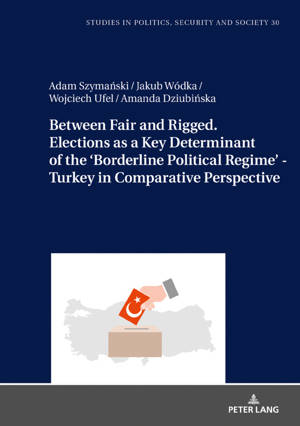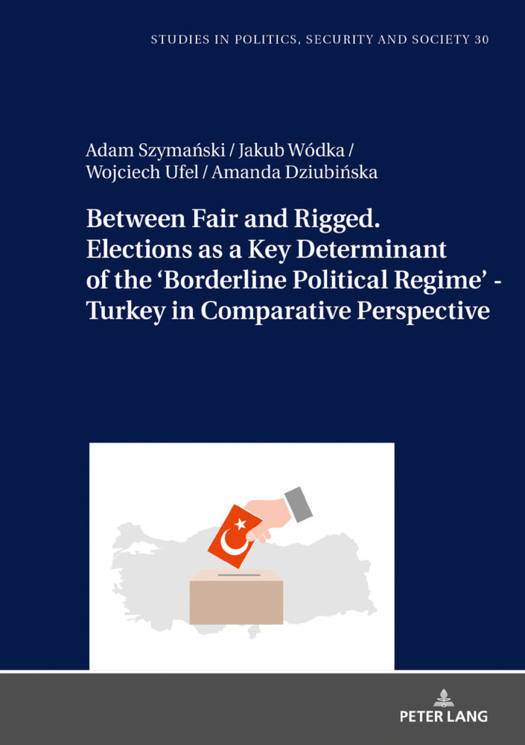
- Retrait gratuit dans votre magasin Club
- 7.000.000 titres dans notre catalogue
- Payer en toute sécurité
- Toujours un magasin près de chez vous
- Retrait gratuit dans votre magasin Club
- 7.000.0000 titres dans notre catalogue
- Payer en toute sécurité
- Toujours un magasin près de chez vous
Between Fair and Rigged. Elections as a Key Determinant of the 'Borderline Political Regime' - Turkey in Comparative Perspective
Adam Szymański, Jakub WódkaDescription
At the beginning of the 21st century, there are an increasing number of states in which elections do not meet the standards of liberal democracy due to electoral malpractices. The analysis of the malpractices at all stages of the electoral cycle and their impact on the political regime is the primary objective of this book. The research focuses on Turkey. However, the authors move one step further and try to present the Turkish case from a comparative perspective. They analyse selected countries in Central Europe, the Balkans and Latin America. They investigate an interesting process of mutual reinforcement of increasingly serious electoral malpractices and change in/of the political regime. It leads to the development of 'borderline regimes' balancing between two types of political regimes.
Spécifications
Parties prenantes
- Auteur(s) :
- Editeur:
Contenu
- Nombre de pages :
- 262
- Langue:
- Anglais
- Collection :
- Tome:
- n° 30
Caractéristiques
- EAN:
- 9783631813638
- Date de parution :
- 28-05-20
- Format:
- Livre relié
- Format numérique:
- Genaaid
- Dimensions :
- 148 mm x 210 mm
- Poids :
- 498 g

Les avis
Nous publions uniquement les avis qui respectent les conditions requises. Consultez nos conditions pour les avis.






